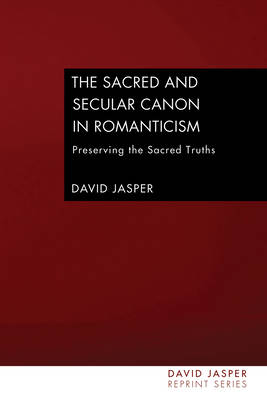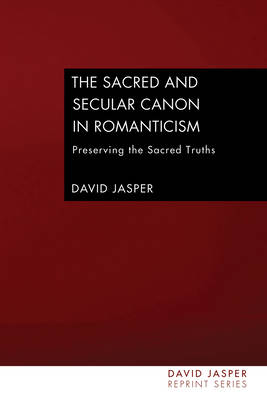
- Afhalen na 1 uur in een winkel met voorraad
- Gratis thuislevering in België vanaf € 30
- Ruim aanbod met 7 miljoen producten
- Afhalen na 1 uur in een winkel met voorraad
- Gratis thuislevering in België vanaf € 30
- Ruim aanbod met 7 miljoen producten
Zoeken
€ 33,45
+ 66 punten
Omschrijving
This book focuses on some of the greatest writers and artists of European Romanticism, including S. T. Coleridge, Wordsworth, J. M. W. Turner, Goethe, Holderlin, and, in the later nineteenth century, Matthew Arnold. Concluding with a discussion of the significance of Romanticism for our understanding of postmodernity, its various chapters explore the place of the biblical canon as the central element in the shift from the sacred to the secular, and the place of the Bible in the development of our concept of Weltliteratur, or world literature, as definitive of culture. In Romanticism, the Bible is situated between two worlds--the ancient and the modern--and remains central in our postmodern world as the power of traditional religious language fades and gives way to new perceptions of the sacred in poetry and art. This book will be of interest to all concerned with art, literature, and the development of biblical criticism and religious thought.
Specificaties
Betrokkenen
- Auteur(s):
- Uitgeverij:
Inhoud
- Aantal bladzijden:
- 168
- Taal:
- Engels
- Reeks:
Eigenschappen
- Productcode (EAN):
- 9781606088340
- Verschijningsdatum:
- 22/06/2009
- Uitvoering:
- Paperback
- Formaat:
- Trade paperback (VS)
- Afmetingen:
- 150 mm x 224 mm
- Gewicht:
- 235 g

Alleen bij Standaard Boekhandel
+ 66 punten op je klantenkaart van Standaard Boekhandel
Beoordelingen
We publiceren alleen reviews die voldoen aan de voorwaarden voor reviews. Bekijk onze voorwaarden voor reviews.











